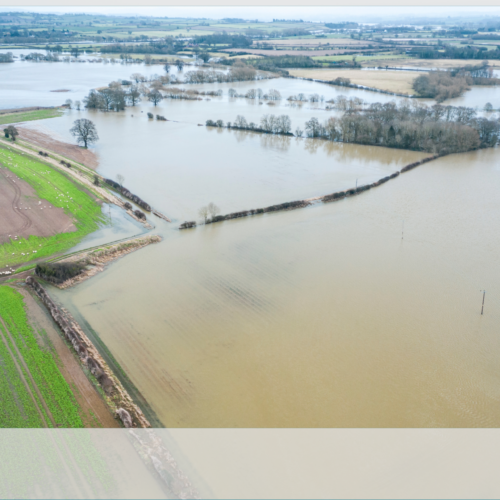“For those of my fellow professional ecologists who are still considering their response to Natural England’s consultation on its four proposed policies on European protected species, here are my thoughts on the consultation and its policies.” Says Richard Arnold, Technical Director at Thomson Ecology.
Questionnaire design
Consultation responses to these policies are sought by a pre-designed questionnaire only. The design of this questionnaire is flawed, being biased towards providing support for the policies proposed by Natural England. Respondents really have no choice but to agree with Natural England that the policies could benefit European Protected Species (EPS) because there are clearly circumstances when this would be the case. Respondents are then only invited to support their earlier response with reasons. However, it is clear there are philosophically circumstances in which the policies would benefit EPS and also circumstances in which they would not; but there is no option to respond in that way. The outcome of the consultation must therefore be viewed with suspicion. Furthermore, the questionnaire provides no opportunity to comment on the effect of the policies on the growing and successful environmental consultancy market.
The consultation should be withdrawn and started again on a more objective footing, taking into consideration the points below.
Uncertainty of implementation
Rather than removing uncertainty, these policies will have the effect of introducing uncertainty into a system which is now well understood and well-rehearsed. For a time at least, there will be a great deal of uncertainty about when the policies apply and when they do not, especially as the policies involve such unquantified, esoteric and ill-defined concepts as ‘conservation status’, ‘additional benefits’, ‘sufficient certainty’ and ‘development [which] will temporarily create habitat’. As only Natural England knows the answer, the cynics will wonder if this might have the intended benefit of boosting the use of Natural England’s £110 per hour consultancy business that it calls the ‘discretionary advice service’; the service gets a mention twice in the consultation document.
In order to really understand the likely benefits or otherwise of these policies, the concepts supporting them should be properly and clearly defined. In the event that these policies are adopted, it is
essential that these concepts are clearly defined so that they can be fully understood by everybody in the industry.
Potential effect on EPS conservation
Doubtless, the pressure from many developers, for quite understandable commercial reasons, will be to avoid surveys and the capture and removal of EPS and offer the minimum ‘additional benefit’ possible. The policies set no threshold for ‘additional benefit’ and so it is unclear what Natural England would accept. It is certainly conceivable, maybe even likely, that the policies will have the end result of unquantified loss of individual EPS while at the same time delivering marginal improvements in habitat availability or quality, with no perceptible improvement in the future prospects of EPS overall.
Clear thresholds should be set out for the circumstances in which survey and translocation are not required, including clear thresholds for what qualifies as additional benefit and a definition of the level of additional benefit that would be required in order to avoid the capture and removal of EPS.
Potential effect on Ecological Consultancy Market
The signal received by many developers will be that neither surveys nor capture and removal of EPS are required any more, and that EPS are no longer an issue, or are much less of an issue, on development sites. In its impact assessment, Natural England acknowledges that “the proposed licensing policies will reduce the demand for some of the services provided by environmental consultants”; this will particularly damage those companies which specialise in ecology for whom the majority of the work undertaken may well be in relation to the management of EPS on development sites. The impact assessment does not go on to quantify the impact on these companies and the staff that they employ. Depending on how these policies are interpreted by Natural England, the impact could be severe and the job losses substantial. The ecological consultancy sector is worth £140m (in 2013) and employs approximately 5,000 people. It is conceivable that the effect of the policies will be to reduce the size of the market and the number of employees by a third to a half, with knock on effects for suppliers to this industry. Hardest hit will be the young professional ecologists, many of whose first job involves survey and capture of great crested newts from development sites. Currently it is the – usually small – ecology consultancies and their staff who effectively are the main support for Natural England policies by advising developers and implementing these policies on the ground. The impact assessment erroneously states that there would be no costs to business, only ‘unquantified savings’ (see the table row entitled Net Cost to Business (EANCB)). This does not provide much confidence in the (very brief) assessment.
The impact assessment undertaken by Natural England is not quantified or thorough and contains a fundamental error. In order to understand the potential benefit to British businesses overall, the quantified cost savings from which developers will benefit should be compared directly to the quantified change in revenue in the ecological consultancy sector, plus the knock-on effect on jobs.
You can access the consultation here.










